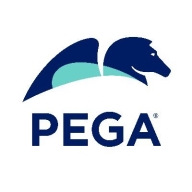

Pega Platform and Appian RPA compete in the field of robotic process automation. Appian RPA has the upper hand due to its advanced feature set despite Pega's strengths in pricing and support.
Features: Pega Platform excels in process automation and integration capabilities, connecting with various systems and streamlining workflow management. Its adaptive analytics support informed decision-making. Appian RPA offers advanced automation capabilities and low-code application development that simplify complex processes and enhance deployment flexibility.
Ease of Deployment and Customer Service: Appian RPA provides a straightforward deployment model that simplifies implementation, adapting to diverse business requirements. Its customer service is highly acknowledged for prompt and effective support. Pega's deployment process is comprehensive with detailed guidance, though it may seem more complex. Pega offers supportive customer service with extensive resources.
Pricing and ROI: Pega Platform generally offers competitive pricing, optimizing for broad adoption with significant ROI as businesses automate and innovate. Appian RPA might have higher initial costs, often offset by rapid time to value and scalability, delivering considerable long-term ROI. While Pega's pricing advantages are notable, Appian's higher return on investment makes it a compelling choice for businesses seeking agile automation solutions.


Appian RPA seamlessly integrates with the comprehensive Appian Platform for process automation, offering an end-to-end solution for streamlining workflows and automating repetitive tasks. With features like the Universal RPA Task Recorder and the Low-code Appian Process Modeler, users can quickly build and deploy bots without extensive coding knowledge. Appian RPA ensures governance, dynamic exception handling, secure deployment, and scalability, enabling organizations to maintain automation integrity while efficiently managing digital workers across various environments. By leveraging Appian RPA alongside Appian IDP, AI, business rules, and API integrations, businesses can achieve seamless process automation and drive value quickly, optimizing workflows between humans, digital workers, and systems. With Appian's unified platform for change, organizations can accelerate digital innovation, enhance business efficiency, and create end-to-end automation solutions tailored to their specific needs.
Pega Platform facilitates business process management, case management, and workflow automation for industries like banking, insurance, and healthcare. It supports digital transformation and customer service enhancements with its low-code capabilities and seamless integrations.
Pega Platform enables users to create efficient systems for case management, financial operations, and digital transformations. It provides tools for client onboarding, quoting, claims processing, customer experience improvements, and content management. Pega's low-code approach allows for the automation of complex processes, making it suitable for enterprises looking for adaptability and rapid deployment. While it offers strong real-time analytics and decision automation, users acknowledge challenges in user interface, integration, and performance aspects. High costs and a learning curve need attention, and enhancements in AI features and cloud services are desired.
What are the key features of Pega Platform?In banking, Pega Platform automates loan processing, accelerates customer onboarding, and manages compliance. Insurance companies benefit from streamlined claims processing and policy management. Healthcare sectors use the platform for patient engagement and care coordination, enabling organizations to adapt quickly to changing industry requirements.
We monitor all Process Automation reviews to prevent fraudulent reviews and keep review quality high. We do not post reviews by company employees or direct competitors. We validate each review for authenticity via cross-reference with LinkedIn, and personal follow-up with the reviewer when necessary.